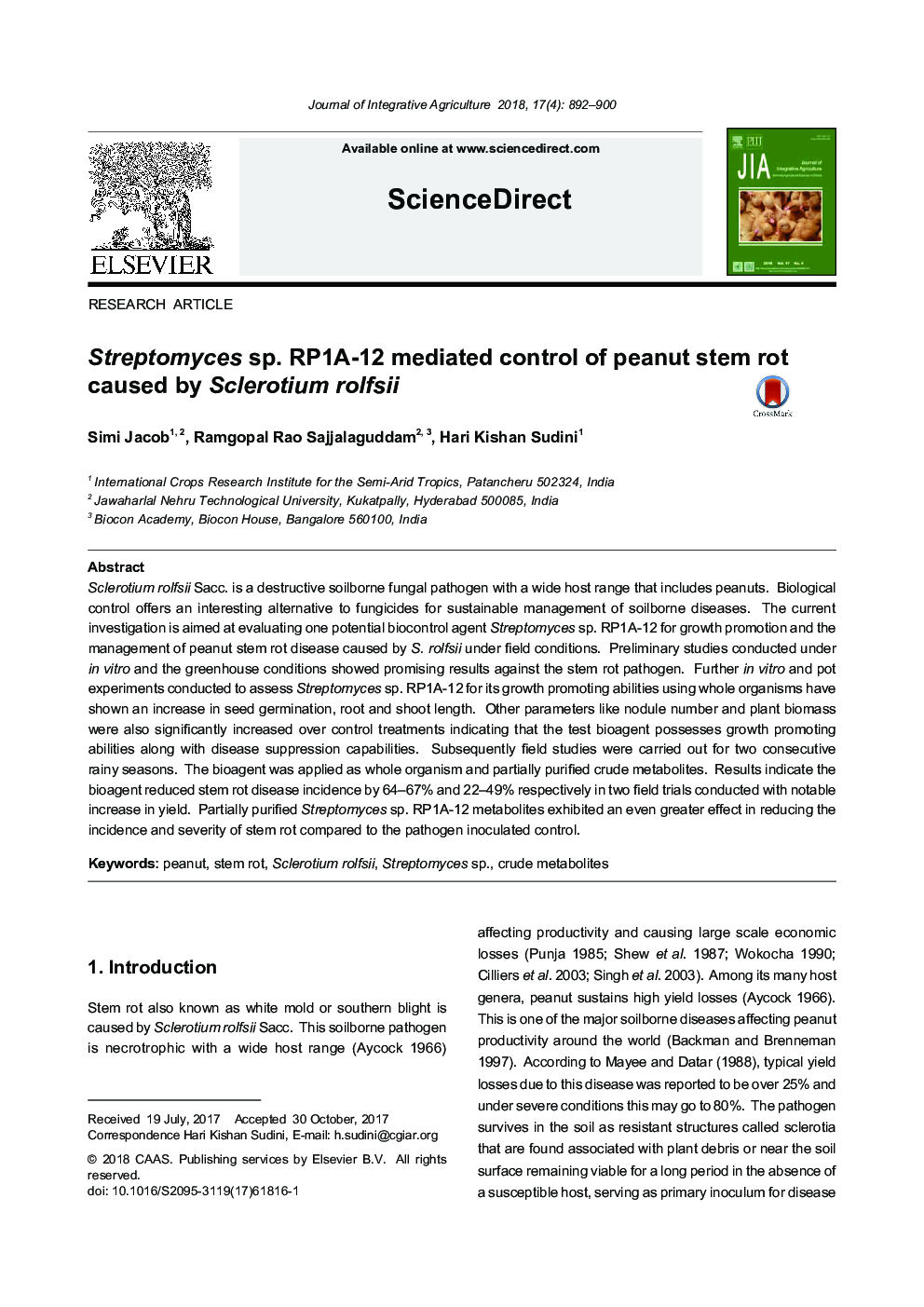| Article ID | Journal | Published Year | Pages | File Type |
|---|---|---|---|---|
| 8875647 | Journal of Integrative Agriculture | 2018 | 9 Pages |
Abstract
Sclerotium rolfsii Sacc. is a destructive soilborne fungal pathogen with a wide host range that includes peanuts. Biological control offers an interesting alternative to fungicides for sustainable management of soilborne diseases. The current investigation is aimed at evaluating one potential biocontrol agent Streptomyces sp. RP1A-12 for growth promotion and the management of peanut stem rot disease caused by S. rolfsii under field conditions. Preliminary studies conducted under in vitro and the greenhouse conditions showed promising results against the stem rot pathogen. Further in vitro and pot experiments conducted to assess Streptomyces sp. RP1A-12 for its growth promoting abilities using whole organisms have shown an increase in seed germination, root and shoot length. Other parameters like nodule number and plant biomass were also significantly increased over control treatments indicating that the test bioagent possesses growth promoting abilities along with disease suppression capabilities. Subsequently field studies were carried out for two consecutive rainy seasons. The bioagent was applied as whole organism and partially purified crude metabolites. Results indicate the bioagent reduced stem rot disease incidence by 64-67% and 22-49% respectively in two field trials conducted with notable increase in yield. Partially purified Streptomyces sp. RP1A-12 metabolites exhibited an even greater effect in reducing the incidence and severity of stem rot compared to the pathogen inoculated control.
Related Topics
Life Sciences
Agricultural and Biological Sciences
Agricultural and Biological Sciences (General)
Authors
Simi Jacob, Ramgopal Rao Sajjalaguddam, Hari Kishan Sudini,
